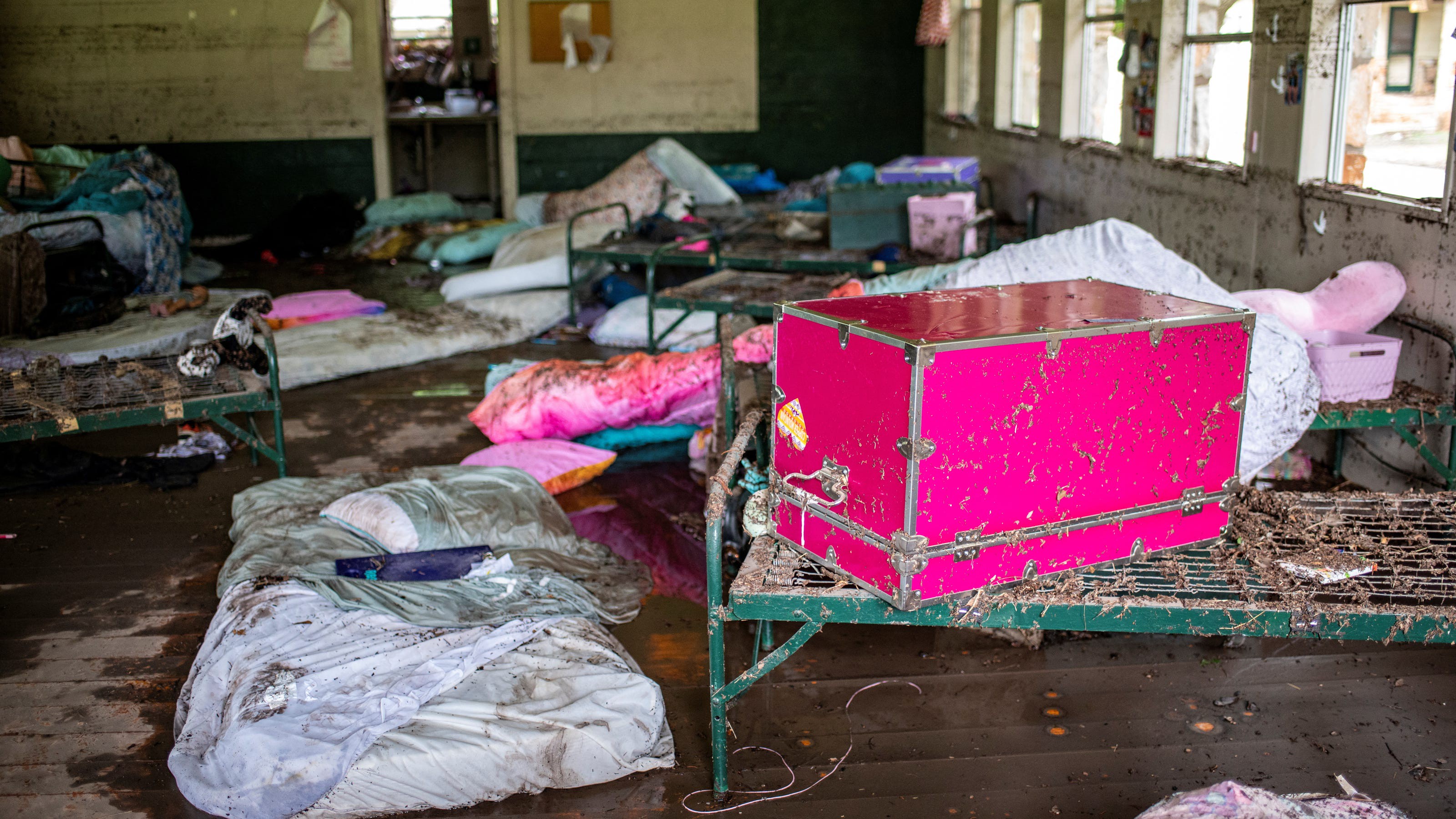news
Viral video shows Camp Mystic children singing while escaping Texas flood
A video depicts children singing as they evacuate Camp Mystic amid the Texas floods, showing how faith and prayer can be used to cope with trauma.
Published July 8, 2025 at 4:27pm by Alexis Simmerman

As the Texas flooding death toll reaches into the triple digits, at least 27 include Camp Mystic campers and a counselor. Per a Monday update, 10 children and one counselor were still missing.
Tragedy struck in the early morning hours Friday, July 4, when the Guadalupe River water levels surged over 26 feet in a 45-minute period. The resulting flooding swept away children and adults at nearby Camp Mystic, a 99-year-old private Christian girls summer camp in the Texas Hill Country.
Some campers were able to evacuate Camp Mystic by bus. A now-viral video depicts several joining in song, singing, "I want my world to know / the Lord of love / has come to me / I want to pass it on." The activity appears to comfort the girls as the bus rolls along broken roads, passing destroyed structures and still-flowing waters over what was once dry land.
The video has garnered hundreds of thousands of views across several platforms, with commenters expressing solidarity and the power of prayer.
"I'm not a 'religious' person but I'm extremely moved by these young ladies' faith and strength," one such comment reads. Others remarked on the song as a symbol of resilience and even-keeled stillness amid a terrible event.
Prayer as a coping mechanism: Expert weighs in
The singing Camp Mystic attendees, along with reactions to the video, demonstrate how faith can help some people through difficult times — even those who do not consider themselves religious, according to Fordham University's associate professor of counseling Mary Beth Werdel. Research links religion to positive outcomes after disasters, as engaging in faith helps people make sense of what's just happened.
"Prayer as a coping mechanism is really useful," said Werdel, who researches how religion leads us through stress and trauma. "Especially when other forms of coping are not available."
For people who have seemingly lost everything in a near-biblical flood, reaching for hymn or prayer is an active medium for healing when other mechanisms, like therapy, aren't easily accessible, Werdel explained.
"Singing is a ritual," she said. "Religion in many ways gives people a roadmap to follow, structure to follow, in a time when stress and trauma make things very chaotic."
'Religion doesn't erase sadness'
The wide-ranging reactions online are an important reminder that everyone processes trauma differently. Not everyone finds peace through prayer at this time. Some reacted to the scene at Camp Mystic by calling out flood warnings that came too late to save lives and decrying local climate change preparedness policies.
But it's not about choosing one versus the other, Werdel said. "We can be hopeful and moved by people's collective experience. And it can also be true that things can happen systemically ... religion's not going to stop the floodwaters."
She added singing can be powerful, but some may find themselves asking, "What type of God would allow this to happen?"
"Allow that question to stay with us," Werdel said. "Try not to find an answer right away ... It's OK to now have an answer."
Werdel recommends working through questions like those with a counselor or therapist. "Religion doesn't erase sadness [or loss]," she added. "But it can give you hope that loss isn't the final reality."
How to cope with trauma after a natural disaster
While research shows Americans have been moving away from religion in recent years, for areas like Central Texas, events like these can show the best examples of experiencing love and loss within a community, said Werdel.
But it's important to acknowledge faith, spirituality and coping are different for everyone. And faith isn't a fit for all people experiencing trauma.
The Anxiety and Depression Association of America offers some other strategies for coping with natural disasters:
- Create a plan: Being prepared can help reduce anxiety before, during and after a big storm. Make a plan to evacuate and put together preparedness kits.
- Be informed: Keep a close eye on weather information and warnings. That may help you gain a sense of control over the situation.
- Talk it out: Don't be afraid to talk about your fears with family members, friends, a counselor or others who can offer emotional support.
- Accept what you can’t control: Nobody can control the path of a storm or its damage. Excessive worry will not change anything except your emotional well-being.

